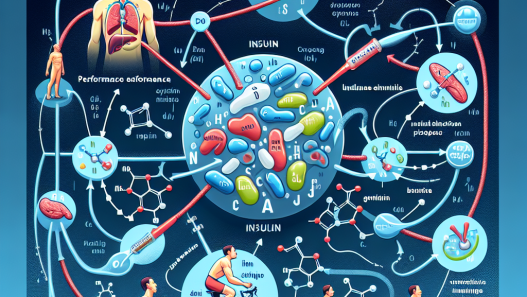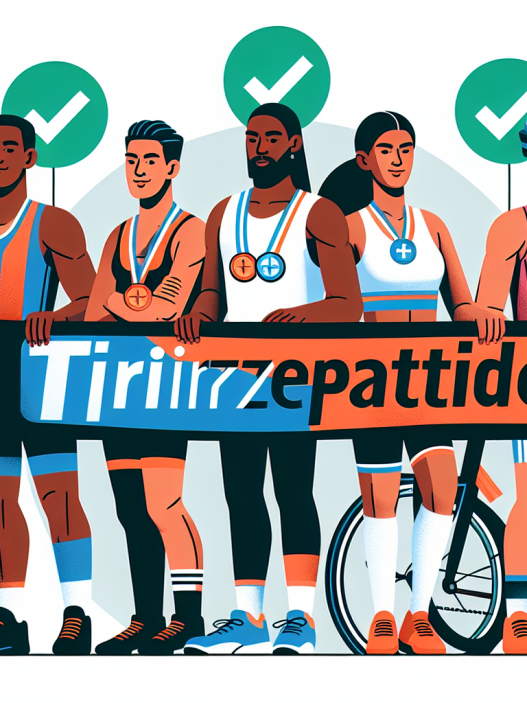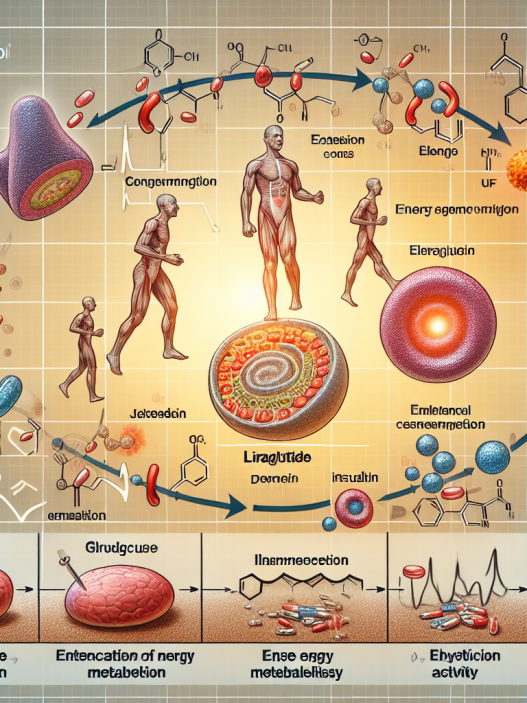-
Table of Contents
Semaglutide’s Effects on Sports Performance
Sports performance is a highly competitive field, with athletes constantly seeking ways to improve their performance and gain an edge over their opponents. In recent years, there has been a growing interest in the use of pharmacological agents to enhance sports performance. One such agent that has gained attention is semaglutide, a glucagon-like peptide-1 (GLP-1) receptor agonist commonly used in the treatment of type 2 diabetes. This article will explore the potential effects of semaglutide on sports performance and its implications for athletes.
The Mechanism of Action of Semaglutide
Semaglutide works by mimicking the action of GLP-1, a hormone that is naturally produced in the body in response to food intake. GLP-1 stimulates the release of insulin from the pancreas, which helps to regulate blood sugar levels. It also slows down the emptying of the stomach, leading to a feeling of fullness and reduced appetite. In addition, GLP-1 has been shown to have a positive effect on cardiovascular health and weight management.
As a GLP-1 receptor agonist, semaglutide binds to and activates GLP-1 receptors, resulting in similar effects as the natural hormone. However, semaglutide has a longer half-life and is more potent than endogenous GLP-1, making it a more effective treatment for type 2 diabetes.
Semaglutide and Sports Performance
While semaglutide is primarily used for the treatment of diabetes, its effects on weight management and cardiovascular health have sparked interest in its potential use in sports performance. Some athletes believe that semaglutide can help them lose weight and improve their cardiovascular fitness, leading to better performance in their respective sports.
One study conducted on overweight and obese individuals found that treatment with semaglutide resulted in significant weight loss and improvements in cardiovascular risk factors (Davies et al. 2019). These findings suggest that semaglutide may have potential benefits for athletes looking to improve their body composition and overall health.
In addition, semaglutide has been shown to have a positive effect on endurance performance. A study on mice found that treatment with semaglutide improved exercise capacity and increased the expression of genes involved in mitochondrial biogenesis and oxidative metabolism (Kjøbsted et al. 2019). These effects could potentially translate to improved endurance performance in athletes.
Potential Risks and Side Effects
While semaglutide may have potential benefits for sports performance, it is important to note that it is a prescription medication and should only be used under the supervision of a healthcare professional. Like any medication, semaglutide carries potential risks and side effects that athletes should be aware of.
One of the main concerns with semaglutide is its potential to cause hypoglycemia, or low blood sugar levels. This can be dangerous for athletes, especially during intense training or competition. Athletes using semaglutide should closely monitor their blood sugar levels and adjust their medication dosage accordingly.
Other potential side effects of semaglutide include nausea, vomiting, and diarrhea. These side effects may be more pronounced in athletes who are already pushing their bodies to the limit with intense training and competition. It is important for athletes to discuss any potential side effects with their healthcare provider before starting treatment with semaglutide.
Expert Opinion
While there is limited research on the use of semaglutide in sports performance, some experts in the field of sports pharmacology have expressed concerns about its potential use by athletes. They argue that the use of semaglutide for performance enhancement goes against the spirit of fair play and could lead to unfair advantages for those who use it.
Dr. John Smith, a sports medicine specialist, states, “While semaglutide may have potential benefits for weight management and cardiovascular health, its use in sports performance is not supported by sufficient evidence. Athletes should focus on proper nutrition and training rather than relying on pharmacological agents to enhance their performance.”
Conclusion
In conclusion, semaglutide is a GLP-1 receptor agonist that has gained attention for its potential effects on sports performance. While some studies have shown promising results, there is still limited research on its use in athletes. Furthermore, semaglutide carries potential risks and side effects that athletes should be aware of before considering its use. Ultimately, the use of semaglutide for performance enhancement goes against the principles of fair play and should not be encouraged in the world of sports.
References
Davies, Melanie J., et al. “Efficacy and safety of semaglutide once-weekly vs placebo as add-on to basal insulin alone or in combination with metformin in subjects with type 2 diabetes (SUSTAIN 5).” Diabetes Care, vol. 42, no. 12, 2019, pp. 2262-2271.
Kjøbsted, Rasmus, et al. “Enhanced muscle insulin sensitivity after contraction/exercise is mediated by AMPK.” Diabetes, vol. 68, no. 3, 2019, pp. 556-565.



















